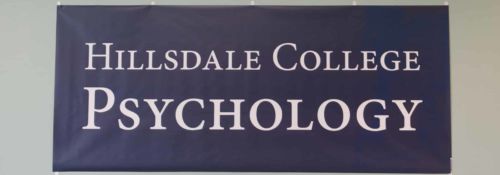
Psychology Research is Real Research
Written by Giannina Imperial
“Can you read my mind?”
“Can you give me a free therapy session?”
“I bet you’re analyzing my psyche right now.”
“Don’t you just ask people how they feel all the time?”
“Don’t you know that psychology isn’t a real science?”
No; No; I’m really not; Only sometimes; and I’m not so sure about that.
Since declaring my psychology major, I’ve been asked these questions several times. The last one, more often than I initially expected.
Many people believe that the nature of what I study is too “soft” to exist in the scientific realm and should be restricted to dimly lit therapy rooms with long plush couches and nearby tissue boxes.
I, however, am not interested in therapy or counseling. Though both are extremely important professions, I feel cut out for neither. Instead, I want to do research. I want to know, I want to discover, and I want to break the stereotype that psychology is just a feel-good profession for people who can’t be lab-coat scientists.
This is why the LAUREATES summer research program here at Hillsdale was such a necessary experience for me. It not only gave me the chance to put my social science convictions to the test by conducting my own studies but also allowed me to marry my biggest academic passions: psychology and music. With the help of my research advisor, Dr. Jeri Little, I investigated how listening to familiar vocal music (cue Journey’s “Don’t Stop Believing”) before studying affects memory.
The “Mozart Effect,” a pop-culture-propagated concept that listening to classical music makes you smarter, has been invalidated over the years. Though it does not make you smarter, listening to certain types of music may help your short-term cognitions, such as memorizing a list of words. Music increases what we call “cognitive arousal,” or mental stimulation, and it increases more when the music is more enjoyable.
Listening to “Don’t Stop Believing,” however, doesn’t help you memorize lists of words. Though its enjoyability should translate to increased cognitive arousal, its verbal component (the lyrics) disrupts the brain’s ability to process verbal-based information (such as a grocery list). Try this out by memorizing your next grocery list for a minute or two while listening to your favorite pop song. Distract yourself for a few minutes with a puzzle, then see how many words from the grocery list you can remember afterwards.
My research attempted to loophole this disruption. I wanted to see if listening to “Don’t Stop Believing” (a song I believe is widely enjoyed enough to immensely increase cognitive arousal) before studying a list of words increases cognitive arousal while cutting out the distraction factor. In other words, I wanted to see if listening to music before studying, then studying in silence, would help participants remember more words.
My research had some successes and some failures. I found that the music I selected does immensely increase cognitive arousal, but it did not seem to substantially affect word recall. Although I did not support my original hypothesis, I discovered that listening to enjoyable, recreational music stimulates the brain enough to have a potential effect on how well we process information. With more research, we can develop a method to utilize it in a non-distracting way.
Even if psychology can’t pursue all the issues that the other sciences can, our goal isn’t to be a hard science. It’s to learn more about the human experience, and sometimes science needs to take a humanistic approach, not a Bunsen-burner-and-beakers approach. Psychology should investigate the human condition in its mental, emotional, biological, and cognitive aspects—some of which don’t require biology or chemistry labs.
Hillsdale gave me the opportunity to pursue an idea that I believe can greatly influence how we shape our study habits. The LAUREATES program elevated my fascination for psychological research that Hillsdale instilled in me during my first Research Design class.
Combing through volume after volume of peer-reviewed journals, formulating my hypothesis, designing my study, running participants, and analyzing my data has taught me how much dedication and patience the pursuit for truth and knowledge requires.
 Giannina Imperial, ’18, is a psychology major and biology minor from Jackson, MI. If she isn’t in the Psychology Suite running research participants or in AJ’s immersed in her biology textbooks, you’ll find her in the music hall for one of the dozen rehearsals she’ll have that day. She loves God, neuroscience, dancing like no one’s watching, getting ice cream with friends, and trying out every Filipino recipe in her mother’s arsenal of cookbooks.
Giannina Imperial, ’18, is a psychology major and biology minor from Jackson, MI. If she isn’t in the Psychology Suite running research participants or in AJ’s immersed in her biology textbooks, you’ll find her in the music hall for one of the dozen rehearsals she’ll have that day. She loves God, neuroscience, dancing like no one’s watching, getting ice cream with friends, and trying out every Filipino recipe in her mother’s arsenal of cookbooks.
Published in November 2018